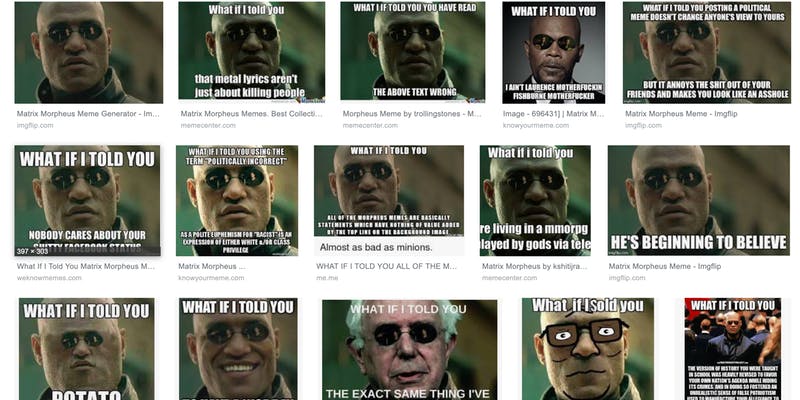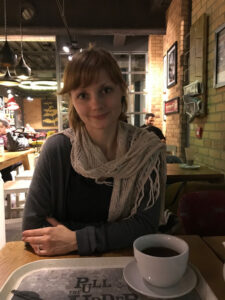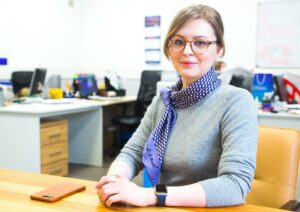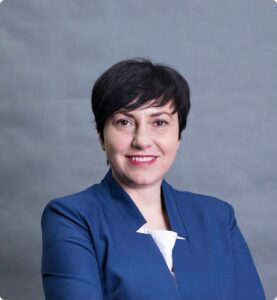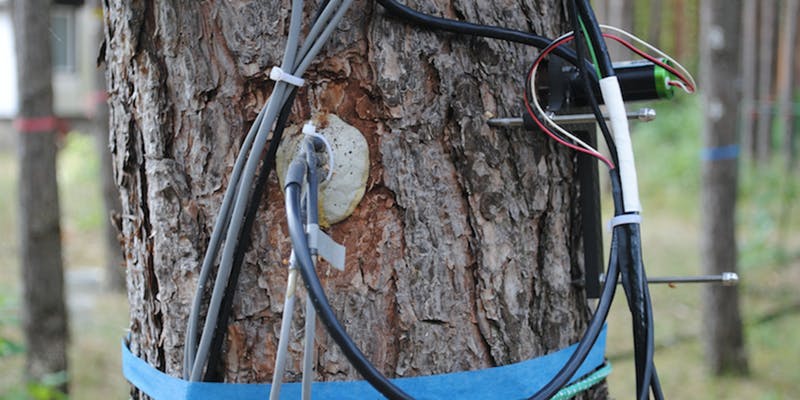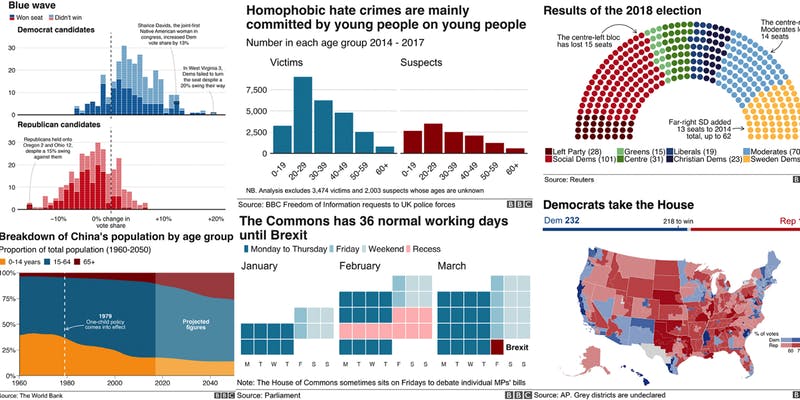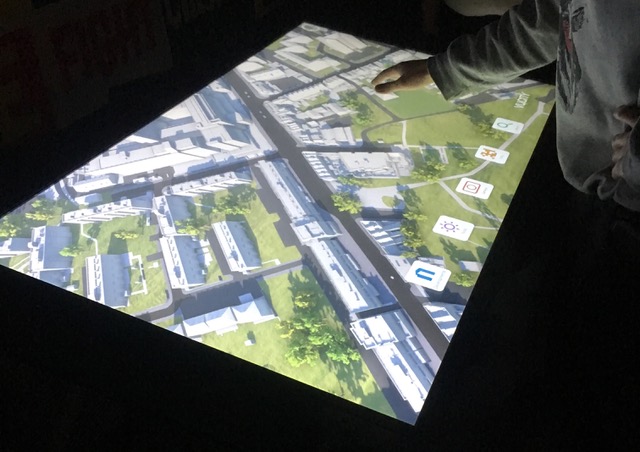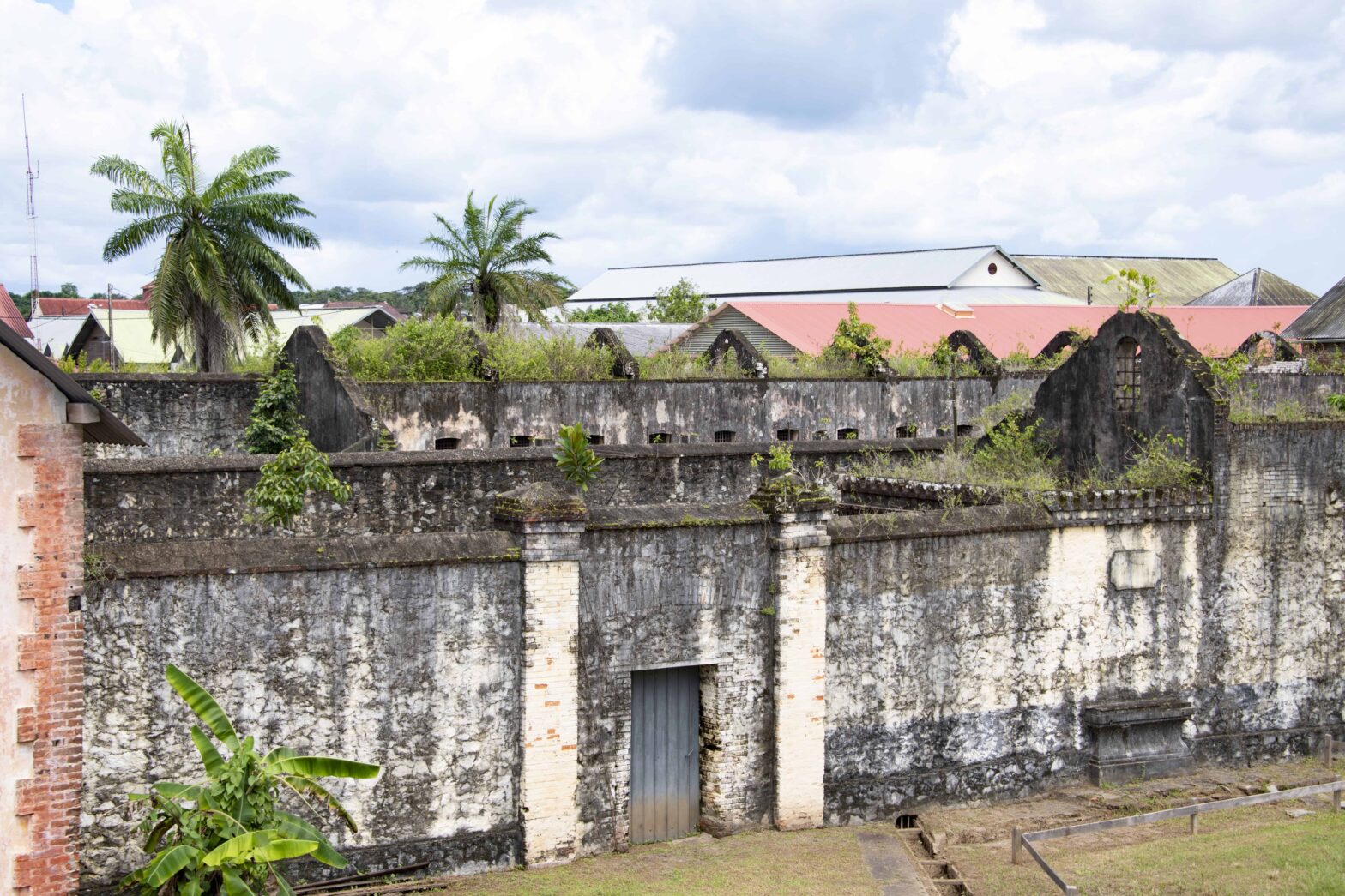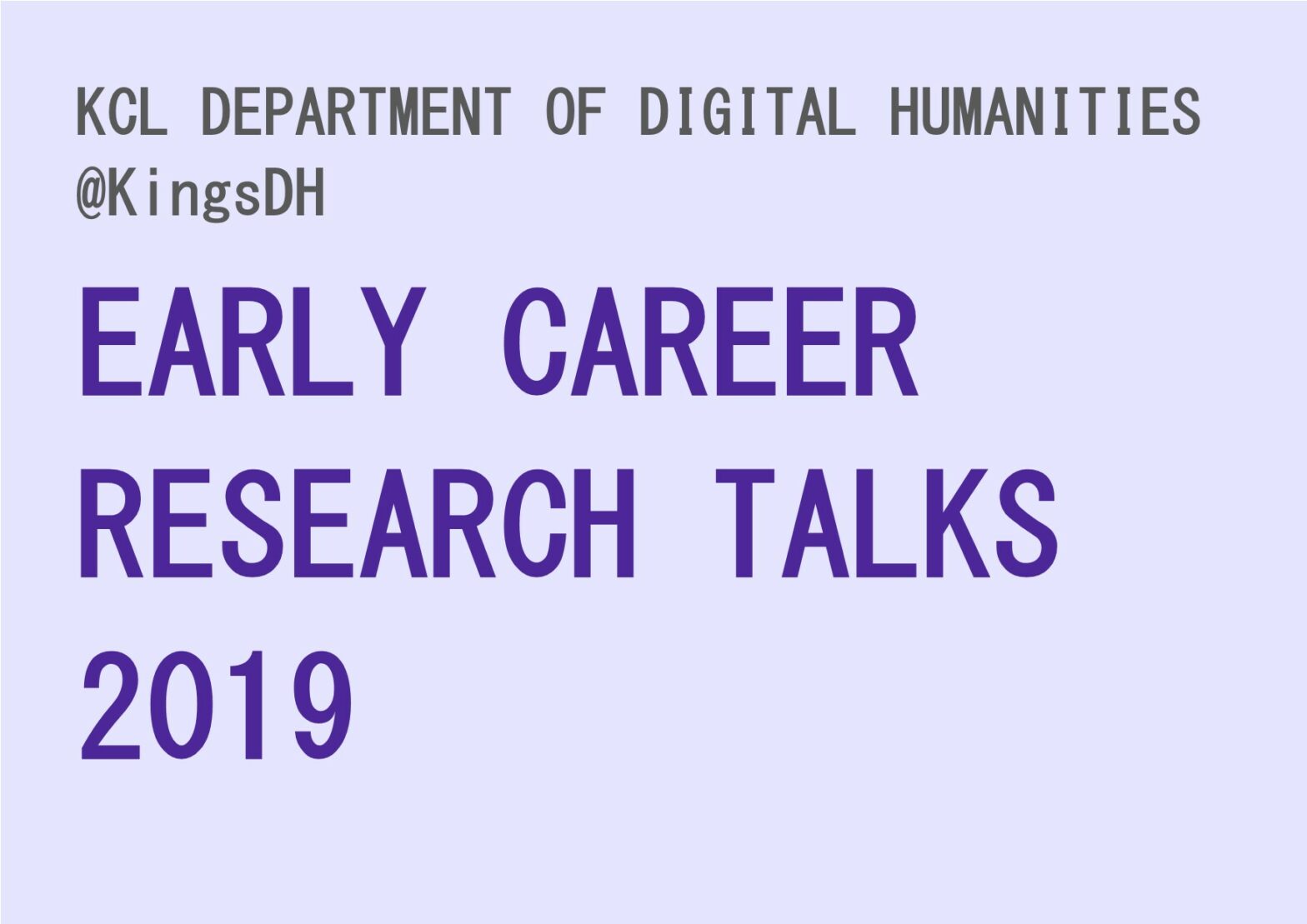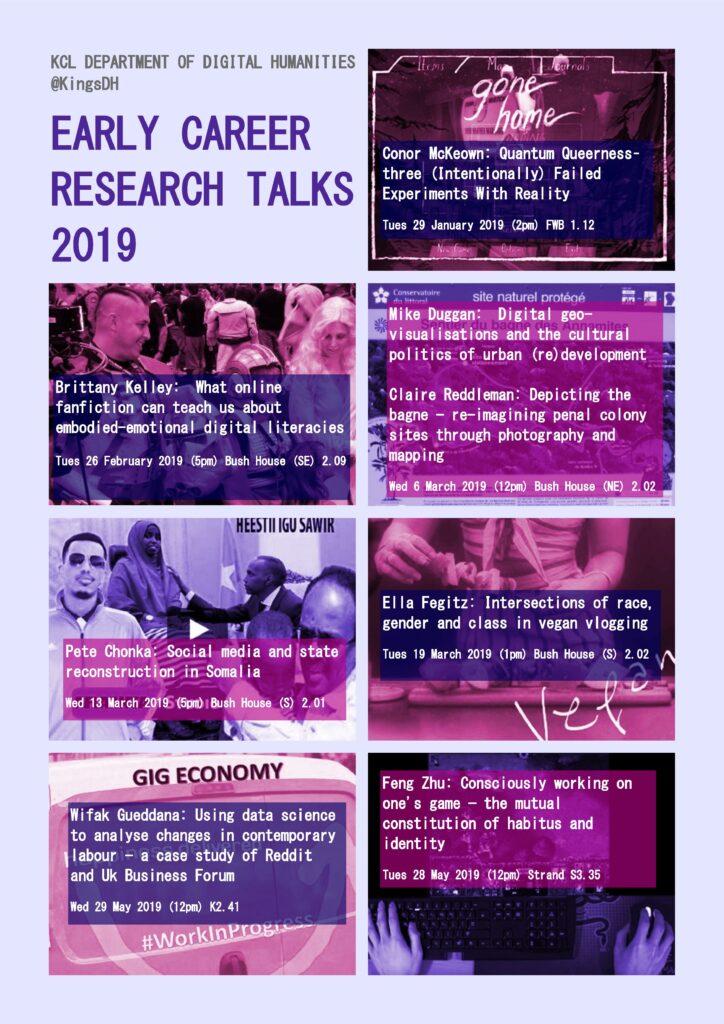Whether physical or digital, or a combination of both, modern laboratories have become places, infrastructures, and frameworks for the Humanities to forge ideas, visions, experiments, and collaborations. The event will revolve around the critical and epistemological roles of humanities labs in supporting and extending academic research and learning beyond traditional classrooms.
The event will be hosted by the Department of Digital Humanities (DDH) with King’s Digital Lab (KDL), in conjunction with the Critical Infrastructure Studies (https://cistudies.org/) initiative. It will be chaired by Arianna Ciula (Deputy Director & Senior Research Software Analyst, KDL), and introduced by James Smithies (Director, KDL | Deputy Director, KCL eResearch) and Jonathan Gray (Co-founder of the Public Data Lab, and Lecturer in Critical Infrastructure Studies, DDH, KCL). At the centre of this event is the talk of 2018-19 Willard McCarty’s Fellowship holder Urszula Pawlicka-Deger (Postdoc Researcher, Department of Media, Aalto University, Finland) who will share her extensive experience of building, theorizing about, and working within humanities labs.
JAMES SMITHIES (https://www.kdl.kcl.ac.uk/who-we-are/dr-james-smithies/)
“The Epistemology of the Machine: Natural Philosophy, Digital Laboratories, and the Humanities” (20 min)
Digital Humanities laboratories, where teams of software engineers collaborate with researchers on work ranging from large funded projects to sundry experiments, provide unexpected insights into the current state and future potential of the humanities. King’s Digital Lab (KDL) at King’s College London – a large team by contemporary standards – demonstrates how these facilities contribute to theory, method, and the wider knowledge environment. This talk describes KDL from methodological, epistemological, technological, and business perspectives in an attempt to align the lab to the longue durée of history. The ‘collision’ of these elements in the physical space of a central London laboratory offers a complex interpretative domain, as rich in potential meaning and implication as scientific laboratories studied in earlier decades. The various methodologies used in the lab present a complex entanglement of humans and machines with the economics of contemporary academia, but also an experimental space where the future of the humanities is – for better or worse – being influenced.
JONATHAN GRAY (https://jonathangray.org/)
“Experiments in Re-assembly? Reflections from the Public Data Lab” (20 min)
This talk will provide reflections on the development of the Public Data Lab (PDL), a network of researchers and research centres from across Europe established with the aim of facilitating collective inquiry and democratic engagement around the future of the data society. Positioning the lab in relation to the research upon which it draws upon – including science and technology studies (STS), media studies and digital methods research – the talk will explore some of the different approaches and formats to participatory research in the data society that have emerged in the course of its projects and activities, including around “fake news”, air pollution, data infrastructures, public facts, networks, visualisations and algorithms.
URSZULA PAWLICKA-DEGER (http://pawlickadeger.com/)
“A Laboratory as Critical Infrastructure in the Humanities” (60 min)
Laboratories have entered the humanities as a new infrastructure aimed at transforming the humanities into an experimental, collaborative, and technology-driven discipline. With the spread of the idea of the laboratory into academic spaces, city spaces, and cultural institutions, the definition of lab has been extended significantly. A laboratory goes beyond the notion of a physical place involving specialized instruments and hands-on scientific exploration, becoming, instead, a widely understood project. A laboratory is thus more than infrastructure; it is a “conceptual vehicle” (Critical Media Lab at the Academy of Art and Design FHNW) and it involves “new ways of engaging with public audiences” (the Humanities Laboratories at Duke University). In short, a laboratory can be conceptualized as a way of thinking that entails new social practices and new research modes. Thus, a lab can be established anywhere. The only condition for creating a lab is community: a lab is constituted by and for the people gathered together to address particular challenges.
My goal is to present the impact of the laboratory through two different perspectives: infrastructural changes in the humanities and structural changes through the humanities. I attempt to go beyond the discussion of a laboratory as a research infrastructure to investigate it as the infrastructure of engagement in social and global challenges. Hence, I pose the following questions: How does a laboratory grow from a physical workspace into actions taken around challenges? How does a laboratory become the driving force of the engaged humanities? How can changes be made through the (digital) humanities infrastructure? Drawing on the sociology of scientific knowledge, laboratory studies, and critical infrastructure studies, I will address these questions and explore the laboratory as a platform for systemic changes.
This talk will consist of two parts. In the first part, I will present three discourses that gave rise to the laboratory in the humanities: the transformation of the humanities infrastructure within the university, the paradigm shifts in the social sciences, and the expansion of particular cultural categories. Further, based on an interactive map of laboratories (humanities labs, digital humanities labs, and media labs) established around the world, I will sketch the history of the lab in the humanities within a global context from the 1980s to 2018. Next, I will determine models for humanities labs based on laboratories’ statements and operations, including the techno-science, workstation, and virtual models. The second part of the lecture aims to examine the lab structure critically and reflect on its potential for the engaged humanities. Referring to social lab theorists, I will seek to answer questions as to how humanities research can be translated into action and how a laboratory drives this process. The analysis will be based on different forms of laboratories seen as sites of interventions: the lab as a challenge-centric space, coalition, and community platform.
Tea, coffee, and pastries provided.
[/three_fourths]
[one_fourth_last]
Register
Register on the Eventbrite: https://bit.ly/2TRnwnw.
Date and time
Thursday 23rd May 2019
14:00-16:00 GMT
Location
Bush House, Room: South-East Wing (SE) 2.10
King’s College London, Strand, Bush House, 30 Aldwych, WC2B 4BG
[/one_fourth_last]



